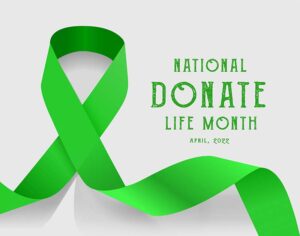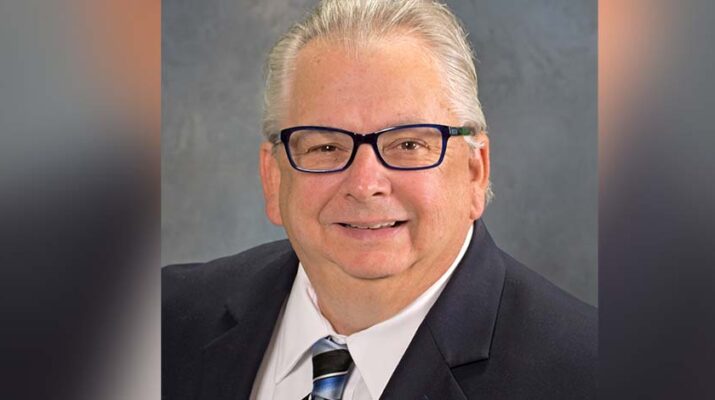There’s a dire need for more organ donors, says executive director of Finger Lakes Donor Recovery Network
By Mary Beth Roach
Q: When was the Finger Lakes Donor Recovery Network established and why?
A: It was established in 1986 to work with the community to increase organ and tissue donation for those who wait for a transplant.
Q: How long have you been at the network?
A: I started here in October of 2016.
Q: Does the network have a defined service area?
A: Yes. We serve 37 hospitals, 20 counties and we go up toward Watertown, south to Elmira, west to Batavia, Rochester and a little east of Syracuse.
 Q: According to the Human Resources and Services Administration’s website, organdonor.gov, 106,277 people are on the national transplant waiting list. Seventeen people die each day waiting for an organ transplant. Thirty-nine thousand transplants were performed in 2020. Every nine minutes another person is added to the transplant waiting list. By current estimates, 54% of U.S. adults (more than 145 million people) have joined organ donor registries. Do you agree with those numbers?
Q: According to the Human Resources and Services Administration’s website, organdonor.gov, 106,277 people are on the national transplant waiting list. Seventeen people die each day waiting for an organ transplant. Thirty-nine thousand transplants were performed in 2020. Every nine minutes another person is added to the transplant waiting list. By current estimates, 54% of U.S. adults (more than 145 million people) have joined organ donor registries. Do you agree with those numbers?
A: Yes, in 2021, we’ve had an 11th consecutive record-breaking year in the United States, where there were more than 41,000 transplants.
Q: How do those numbers compare to New York state or your service area?
A: I can talk about the number of individuals waiting. In New York state, we have about 8,300 individuals waiting for a transplant, and in our service area, which includes both Rochester and the Syracuse area, those lists have about 835 patients waiting for an organ.
Q: Have organ donations increased in your service area? Why or why not?
A: Yes, organ donation in our area has certainly increased over the last four or five years. I think the big reason is because of the Donor Registry. We have more individuals who are choosing to sign on the Donor Registry and that has really helped increased donations. Families know what their loved ones want to do for the most part. It makes our conversation with families at the appropriate time go much smoother.
Q: Can you explain what the Donor Registry is and how one might make their wishes known?
A: The Donor Registry is a registry that an individual can sign up for if they would like to donate organ, tissue and eyes after they die, to pass on the gift of life. If they do, they can sign up at www.passlifeon.org or www.donorrecovery.org
Q: Is there also a way to make your organ donation wishes known on your driver’s license?
A: Absolutely. When they go to the DMV to sign up for a driver’s license, that question is asked. If they so choose to donate, that information is then processed and given to the Donor Registry.
Q: How are organ donations and requests handled by the network? What is the network’s role in this process?
A: When an individual passes away at the hospital, we are called. We work with the families directly. We double-check the Donor Registry and if they are on the Donor Registry, we let the next of kin or family know the individual was on the Donor Registry and then the donation would occur. If they are not on the Donor Registry, we talk with them about organ donation and tissue donation and give them an opportunity to make that decision on behalf of the individual.
Q: You’ve seen an increase in your service area. Are you where you want to be?
A: No, we are not where we want to be. As long as there is someone in need of an organ or dies without an organ available, we have to continue to improve. We are always looking for ways to improve organ donation.
Q: What are some of the obstacles, fears or concerns that people have in making the decision as to whether to become an organ donor?
A: When you look at the common myths out there, individuals believe that they are too old or they’re not healthy enough to donate. What we encourage people to do is to go to the Donor Registry or go the driver’s license bureau and sign up to be an organ and tissue donor. We will evaluate the medical, social history and make a determination at the time of death, if that individual would be able to donate. Another myth is that not all religions support organ donation. I would say that all major religions in the world view organ donation as a charitable act and make it clear that it is decision to be left up to the individual or family. One other myth is that it costs to donate. There is no cost to donate an organ and tissue to the donor or donor family or estate. [Another myth is that] organ donation does affect their funeral wishes. It does not. The recovery of organs is a surgical procedure and does not disfigure the person’s body. An open-casket funeral or viewing is possible following donation.
Q: I have read that some people believe that if they are an organ donor, and if they’re in an accident, for example, the medical team may not try as hard to try to keep them alive.
A: Medical professionals are trained to save your life, first and foremost. The doctors and the team involved in saving your life is different from those involved in organ and tissue recovery. The hospital staff doesn’t have access to the Donor Registry, so they don’t know if you’re a registered donor or not.
Q: Is there anything you’d like to add?
A: I think it’s important for individuals to know the facts about organ and tissue donation and transplantation, make an informed decision, sign up on the Donor Registry and share that decision with their family.
Q: What resources are out there to help people make a good decision and get the facts?
A: There are plenty of websites available. Every transplant center has information. I would encourage people to go to donorrecovery.org. That has a lot of the information, a lot of the myths and it would allow families or individuals to sign up on the Donor Registry while they’re on that site.
For more information about Finger Lakes Donor Recovery Network or organ donation, go to www.donorrecovery.org or www.passlifeon.org.

